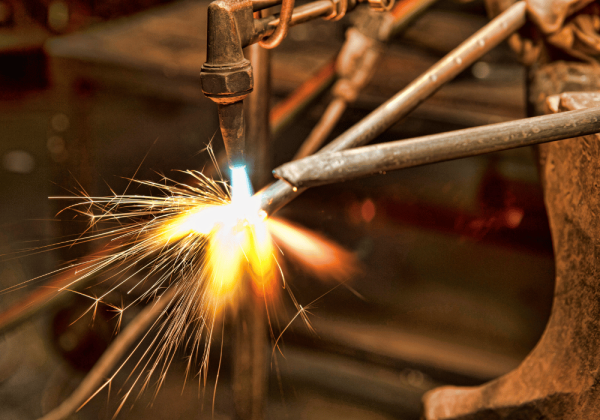Have you ever stopped to marvel at the intricate metalwork in products ranging from architectural structures to machinery components? All of these stem from a process known as custom metal fabrication. But what exactly is it? And why is it so essential across industries? Whether you’re a manufacturer seeking precision-made parts or simply curious about how custom structures come to life, this guide will break it all down.
What Is Custom Metal Fabrication?
Custom metal fabrication is the process of cutting, bending, and assembling metal to create customized products, components, or structures tailored to specific needs. Unlike mass production, where items are manufactured in bulk with standard measurements, custom fabrication focuses on fulfilling unique design specifications.
This method combines modern technology, skilled craftsmanship, and engineering principles to produce metal elements that are functional, durable, and aesthetically pleasing.
Key Steps in Custom Metal Fabrication
The following steps are central to bringing a custom metal project to life:
1. Design and Planning
Everything starts with an idea. Engineers, designers, or clients provide blueprints or create 3D models that form the design for the finished product. The design phase is crucial as it ensures every measurement and specification is optimized for functionality and accuracy.
2. Cutting
Using advanced tools like lasers, plasma cutters, or waterjets, fabricators cut large sheets or pieces of metal into the required shapes. This process delivers the precision needed for bespoke projects.
3. Shaping and Bending
Once the metal is cut, it is shaped and bent to fit the intended design. This might be achieved through press brakes, rollers, or other specialized machinery.
4. Welding and Assembly
Different pieces of metal are welded and joined together to form the final shape. This step brings all the separate components together into a cohesive product.
5. Finishing
Finally, polishing, painting, powder coating, or other finishes are applied to enhance durability and appearance.
Metal Types Used in Custom Fabrication
 While a wide range of metals can be used in fabrication, these are the most common:
While a wide range of metals can be used in fabrication, these are the most common:
- Steel (including carbon and stainless varieties): Known for strength and versatility, steel is widely used in industries from construction to automotive.
- Aluminum: Lightweight, corrosion-resistant, and ideal for applications requiring mobility.
- Copper and Brass: These metals are often used for decorative purposes or electrical applications due to their conductivity.
- Titanium: Lightweight and incredibly strong, titanium is often used in aerospace and medical industries.
The choice of metal often depends on the specific application, required properties (like strength, weight, or malleability), and budget.
Applications of Custom Metal Fabrication
Custom metal fabrication is used across countless industries, including:
- Construction
Custom beams, staircases, railings, and roofing materials.
- Manufacturing
Machinery components, equipment enclosures, and assembly line parts.
- Automotive and Aerospace
Customized frames, chassis elements, and precision parts.
- Interior Design
Unique furniture, art installations, and fixtures.
- Medical
Surgical instruments, hospital equipment, and mobility devices.
Benefits of Custom Metal Fabrication
1. Precision and Customization
Custom metal fabrication allows for exact designs tailored to specific needs, ensuring precision and quality that off-the-shelf components often lack.
2. Durability
High-quality metals and professional craftsmanship ensure robust, long-lasting products capable of withstanding demanding conditions.
3. Creativity and Aesthetics
Bespoke fabrication opens up endless design possibilities, ensuring products that are both functional and visually stunning.
4. Versatility
Because it is a tailored process, custom metal fabrication works for small one-off projects, large industrial installations, and everything in between.
Choosing the Right Custom Metal Fabrication Partner
If you’re considering custom metal fabrication for your next project, finding the right partner is key. Look for a company with:
- Experience in the type of product or project you’re working on.
- Advanced technology, such as CNC machines or laser cutting systems, to ensure precision.
- High-quality materials and attention to detail.
- Strong customer support to guide the process from design to delivery.
Custom metal fabrication is everywhere, from iconic architecture to the tools we use daily. It’s a perfect blend of art, engineering, and technology designed to meet specific needs.
Whether you’re a business needing custom components or an individual with a creative idea, custom metal fabrication can bring your vision to life with strength, precision, and beauty.
Are you ready to start your custom fabrication project? Connect with a trusted fabricator today to discuss your needs and take the first step toward bringing your ideas to life.
